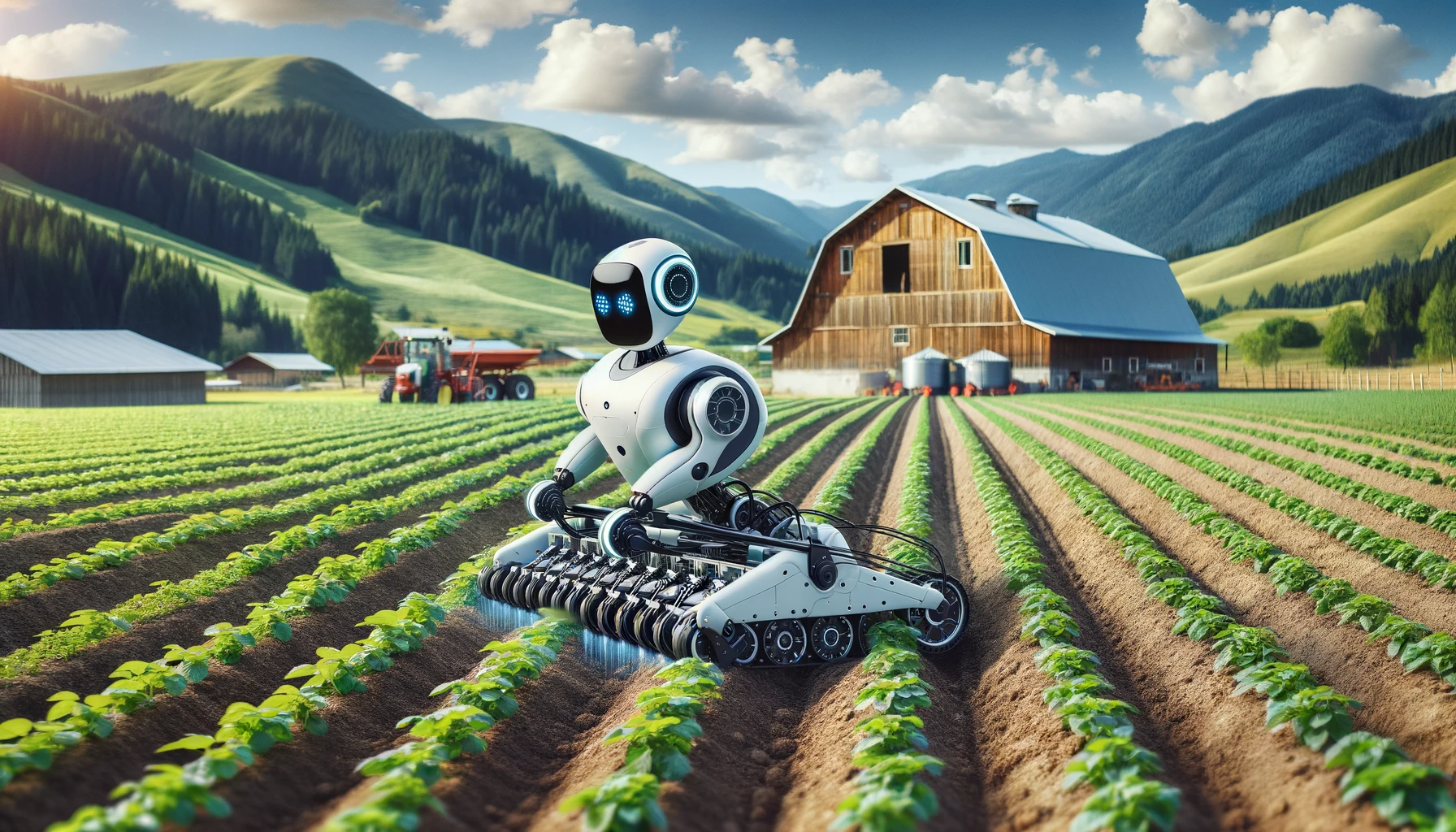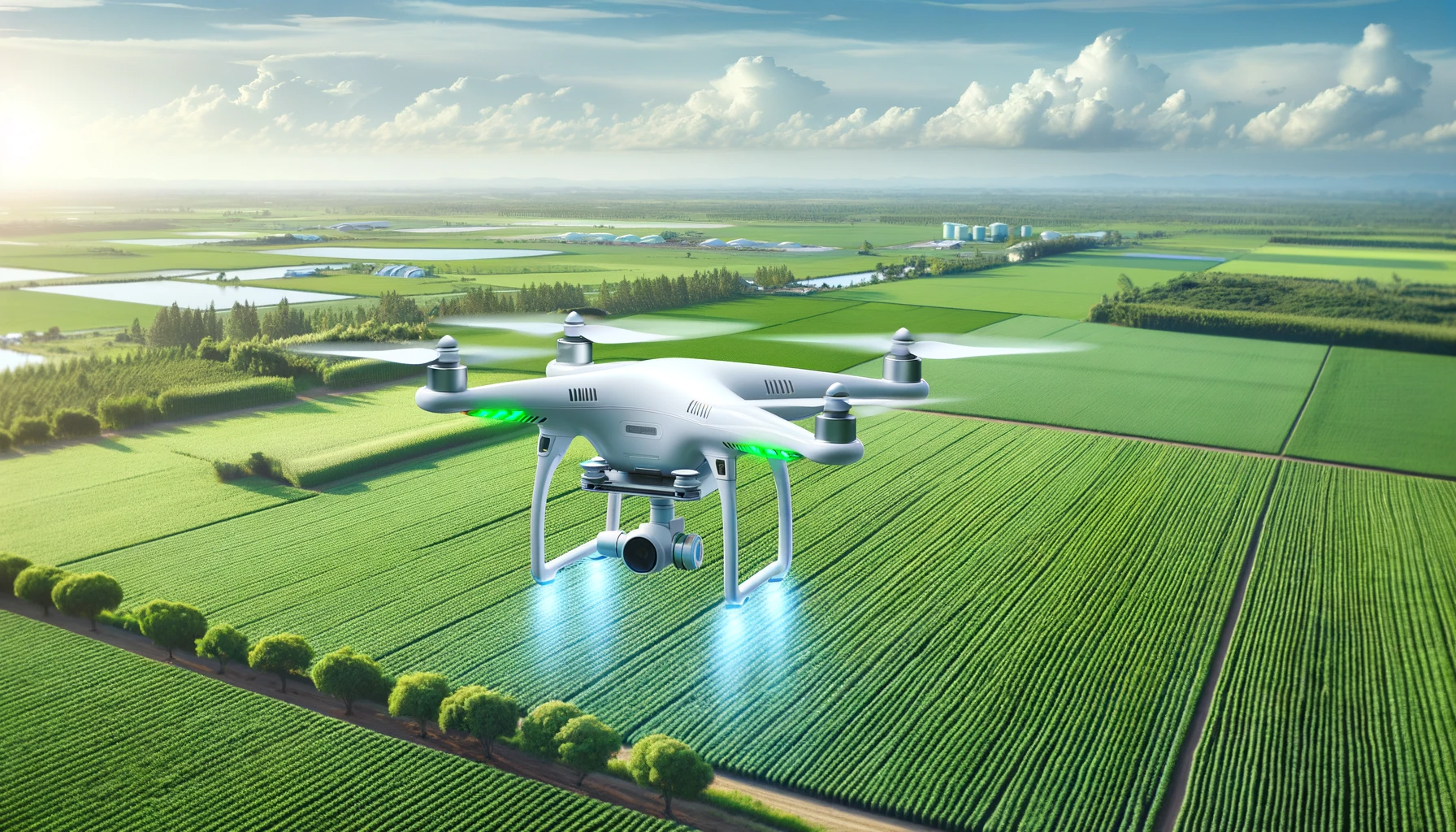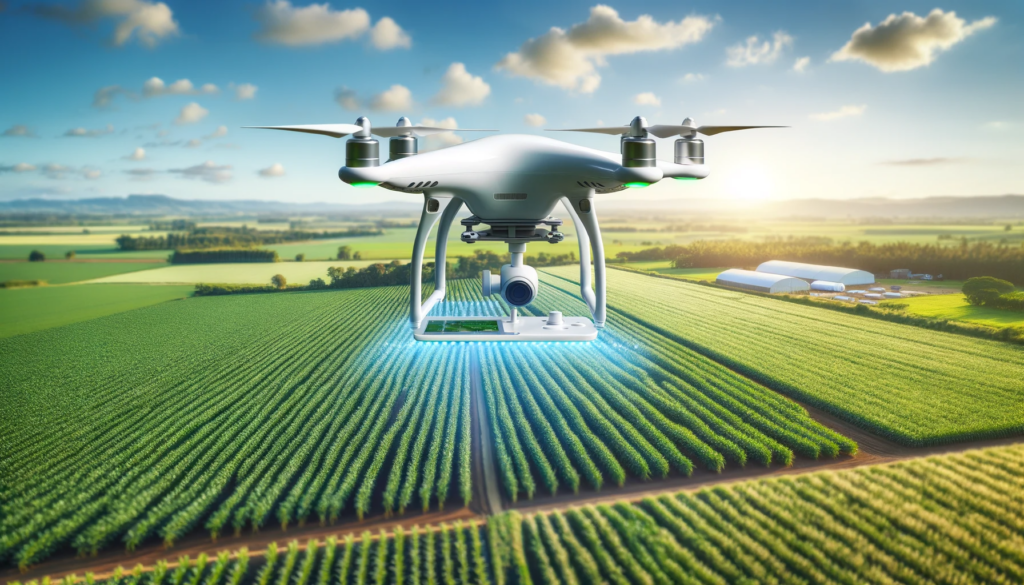Agriculture stands as the bedrock of civilization, providing sustenance and sustenance for humanity for millennia. As the global population continues to grow, the need to feed billions while safeguarding the planet’s finite resources has become one of the defining challenges of our time. In this quest for a more sustainable agricultural sector, a revolutionary ally has emerged: Artificial Intelligence (AI).
AI, with its capacity to process vast amounts of data, make precise decisions, and optimize resource utilization, has sparked a transformation in agriculture. This article embarks on a journey to explore the profound impact of AI in the agricultural landscape, with a keen focus on its potential to foster sustainability.
As we delve into the realms of precision farming, crop management, and sustainable agricultural practices, we will unravel the ways in which AI technologies are reshaping the sector. From optimizing resource use to minimizing environmental impacts, AI is at the forefront of efforts to create a more sustainable and resilient agricultural future. Join us in this exploration of how AI is poised to help us achieve a more sustainable agricultural sector, ensuring food security while safeguarding our planet’s precious resources.
Precision Farming: AI’s Impact on Agriculture
Precision farming, often referred to as precision agriculture, represents a paradigm shift in how we approach agricultural practices. At its core, precision farming is about using data-driven insights and technology to make more informed decisions on a micro-scale within the field. AI plays a pivotal role in driving this transformation.
Defining Precision Farming

Precision farming encompasses a range of technologies and practices aimed at optimizing various aspects of crop production. It involves the collection of real-time data from the field, such as soil conditions, weather patterns, and crop health indicators, and the use of this data to make targeted decisions. These decisions can range from adjusting irrigation and fertilizer application to controlling pests and diseases, all with the goal of maximizing crop yield and resource efficiency.
AI in Data Collection and Analysis
AI technologies, including machine learning and computer vision, are instrumental in collecting and analyzing the vast amount of data generated on farms. Drones equipped with AI-powered cameras can capture high-resolution images of fields, helping farmers monitor crop health and identify issues like pest infestations or nutrient deficiencies. Soil sensors equipped with AI algorithms provide real-time information about soil moisture and nutrient levels, enabling precise irrigation and fertilization.
Decision Support Systems
One of the key applications of AI in precision farming is the development of decision support systems. These systems use AI-driven algorithms to process data and provide farmers with actionable recommendations. For instance, based on weather forecasts and soil moisture data, AI can advise farmers on when and how much to irrigate, reducing water waste and ensuring optimal plant hydration.
Reducing Resource Waste
AI-driven precision farming has the potential to significantly reduce resource waste. By tailoring resource application to specific crop needs, farmers can minimize the use of fertilizers, pesticides, and water, all of which have environmental and economic implications. This not only leads to cost savings for farmers but also contributes to sustainable farming practices by reducing chemical runoff and the carbon footprint of agriculture.
Maximizing Crop Yield
Ultimately, the goal of precision farming is to maximize crop yield while minimizing input costs. AI accomplishes this by ensuring that resources are applied where and when they are needed most. By fine-tuning planting density, optimizing irrigation schedules, and identifying the best timing for pest control measures, farmers can achieve higher yields and greater profitability while using fewer resources.
AI in agriculture, Sustainable farming, Precision farming with AI, AI technology in agriculture, Sustainable agriculture practices, AI-driven farming solutions, Green tech revolution in agriculture, AI for sustainable food production, Smart farming and sustainability, Agriculture’s environmental impact, Sustainable farming with AI, Greening the agriculture sector, AI-powered crop management, Sustainability in agriculture, AI innovations in farming, AI’s role in sustainable agriculture, Farming technology and sustainability, AI-driven resource optimization, Sustainable crop production, Future of sustainable agriculture

Challenges and Ethical Considerations
While the potential benefits of AI in precision farming are immense, challenges and ethical considerations must be addressed. These include the accessibility of AI technologies for small-scale farmers, data privacy concerns related to the collection and sharing of farm data, and the need for transparency in algorithmic decision-making. Additionally, there is a learning curve associated with adopting AI-driven precision farming practices, requiring education and training for farmers to harness these technologies effectively.
Despite these challenges, the integration of AI in precision farming represents a promising avenue for increasing the sustainability of agriculture. By optimizing resource use, reducing waste, and enhancing crop productivity, AI is contributing to a more efficient and environmentally friendly agricultural sector. In the following sections, we will further explore how AI is influencing crop management and sustainable farming practices, bringing us closer to a future of sustainable agriculture.
Conclusion
In the quest for a more sustainable agricultural sector, Artificial Intelligence (AI) emerges as a powerful catalyst for transformation. Throughout this exploration, we have witnessed the profound impact of AI in precision farming, crop management, and the promotion of sustainable agricultural practices.
Precision farming, empowered by AI technologies, has redefined the way we approach agriculture. By harnessing the capabilities of data collection, analysis, and decision support, AI enables farmers to optimize resource use with unprecedented precision. This results in reduced resource waste, increased crop yield, and enhanced profitability, all while contributing to environmental stewardship.
AI’s role in crop management is equally pivotal. From monitoring soil health and pest control to irrigation optimization, AI-driven algorithms provide actionable insights for farmers to enhance crop quality and yield. The adoption of AI-powered solutions in crop management not only improves productivity but also reduces the environmental impact of agricultural practices.
The promotion of sustainable farming practices is another facet of AI’s contribution to agriculture. AI supports organic farming, reduced chemical use, and environmentally conscious resource allocation. By monitoring and mitigating environmental impacts, AI technologies help farmers minimize soil erosion, water pollution, and greenhouse gas emissions.
However, this transformative journey is not without its challenges and ethical considerations. Issues such as accessibility, data privacy, transparency, and the need for education and training must be addressed to ensure equitable access and responsible use of AI in agriculture.
As we conclude this exploration, it is evident that AI holds the promise of helping us achieve a more sustainable agricultural sector. The integration of AI technologies aligns with global efforts to address food security challenges, reduce the environmental footprint of agriculture, and promote resilient farming systems.
To realize the full potential of AI in agriculture, collaboration between farmers, researchers, policymakers, and industry stakeholders is essential. By working together, we can harness the power of AI to create a future where agriculture sustains not only our growing global population but also the planet we call home. AI, with its capacity for precision, efficiency, and innovation, offers a pathway toward a more sustainable and prosperous agricultural sector, bringing us closer to a world where food security and environmental stewardship go hand in hand.
